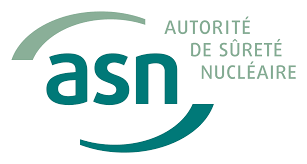Nuclear Reactors 574 - The French Nuclear Regulatory Agency Issue New Requirements For Nuclear Component Manufacturers
One of my biggest concerns about nuclear power is whether we can rely on private companies to follow proper procedures in the manufacture of nuclear components destined for the construction of nuclear power plants. There have been too many instances where nuclear component manufacturers were not sufficiently concerned about quality control.
In April of 2015, Autorité de Sûreté Nucléaire (ASN), the French nuclear regulatory agency, reported that they had found an “anomaly” in the composition of the steel alloy in certain parts of the vessel closure head and the vessel bottom head of the Flamanville European Pressurized Reactor. The ASN challenged Areva NP and EDF to “learn all possible lessons from this event”.
A year later in May of 2016, ASN reported on an ongoing quality audit at the Le Creusot forge, purchased by Areva in 2006. They found “irregularities” in the documentation associated with four hundred nuclear plant components manufactured at the forge since 1965. The report added that irregularities of the same type had been discovered in other countries.
The ASN said that it has “assessed how to strengthen the requirements applicable to the industry and how to improve the industry's own oversight system.” On May 15th, they wrote a letter to all the French nuclear operators and manufacturers of nuclear pressure equipment and equipment for the transport of radioactive materials. In the letter, the ASN explained the necessary regulatory requirements for preventing, detecting and deal with counterfeit, suspect and fraudulent items (CSFI). They also said that more considerations should be given to the risk of CSFI in the integrated managements systems that are a requirement for such companies. The ASN also demands that licensees and manufacturers report on what actions they intend to turn over to external inspection agencies.
The new ASN actions are intended to supplement the provisions made by licensees and manufacturers. These include improving data security and the utilization of external organizations for inspections to support the oversight of manufacturing. The ASN also intends to make improvements in their oversight practices and require that any evidence of fraud is systematically reported to the ASN.
The ASN is making arrangements for whistleblowers to report any potential CSFI directly to the ASN. These arrangements should be in place by the end of 2018. The ASN is also going to hire two anti-fraud specialists as well as supplementing the training of its inspectors.
On June 8th, the ASN said that the "Confirmed or suspected cases, some of which were detected by basic nuclear installation licensees or the manufacturers themselves, only concern an extremely small part of nuclear activities, but could nonetheless have significant safety implications.”
“This situation shows that neither the robustness of the monitoring and inspection chain, at the top of which are the manufacturers and the licensees, nor the high level of quality demanded in the nuclear industry, were able to completely rule out the risk of counterfeit, suspect and fraudulent items (CSFI).”
The problems at Le Creusot sent shockwave through the global supply chains for nuclear power plant components. Let us hope that the actions of the ASN will prevent such behavior in the future.
